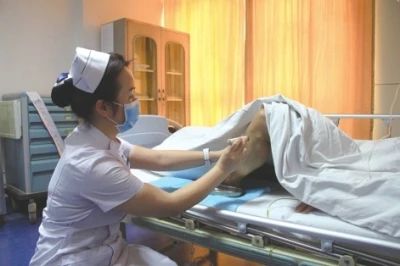
Introduction
The standard for “Classification and Determination of TCM Constitution” has been officially released. This standard is the first document in China to guide and regulate the research and application of TCM constitution, aiming to provide a basis for constitution identification and the prevention and treatment of diseases related to TCM constitution, as well as health management, making the classification of constitution scientific and standardized.
This standard classifies constitution into Pinghe Zhi (平和质, Harmonious Constitution), Qi Xu Zhi (气虚质, Qi Deficiency Constitution), Yang Xu Zhi (阳虚质, Yang Deficiency Constitution), Yin Xu Zhi (阴虚质, Yin Deficiency Constitution), Tan Shi Zhi (痰湿质, Phlegm-Damp Constitution), Shi Re Zhi (湿热质, Damp-Heat Constitution), Xue Yu Zhi (血瘀质, Blood Stasis Constitution), Qi Yu Zhi (气郁质, Qi Stagnation Constitution), and Te Bing Zhi (特禀质, Special Constitution), utilizing interdisciplinary methods from epidemiology, immunology, molecular biology, genetics, and mathematical statistics, established as a standardized tool for constitution identification through multiple validations by clinical TCM experts, epidemiologists, and constitution specialists.
Pinghe Zhi (平和质) 【Type A】

Overall Characteristics: Harmonized Yin, Yang, Qi, and Blood, characterized by a moderate physique, rosy complexion, and abundant energy.
Physical Characteristics: Well-proportioned and robust physique.
Common Manifestations: Rosy complexion and skin, thick and shiny hair, bright eyes, moist nose, clear sense of smell, rosy lips, not easily fatigued, abundant energy, tolerant to cold and heat, good sleep, good appetite, normal bowel movements, pale red tongue, thin white coating, and a soft, strong pulse.
Psychological Characteristics: Easy-going and cheerful personality.
Tendency to Illness: Rarely falls ill.
Adaptability to External Environment: Strong adaptability to natural and social environments.
Qi Xu Zhi (气虚质) 【Type B】
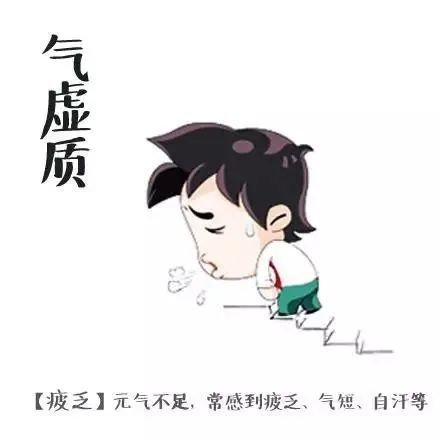
Overall Characteristics: Insufficient vital energy, characterized by fatigue, shortness of breath, and spontaneous sweating.
Physical Characteristics: Soft and weak muscles.
Common Manifestations: Usually low voice, shortness of breath, easily fatigued, lack of energy, prone to sweating, pale red tongue with tooth marks, and weak pulse.
Psychological Characteristics: Introverted personality, dislikes risk-taking.
Tendency to Illness: Prone to colds, organ prolapse, etc.; slow recovery after illness.
Adaptability to External Environment: Poor tolerance to wind, cold, heat, and dampness.
Yang Xu Zhi (阳虚质) 【Type C】

Overall Characteristics: Insufficient Yang energy, characterized by cold intolerance and cold extremities.
Physical Characteristics: Soft and weak muscles.
Common Manifestations: Usually cold intolerance, cold hands and feet, prefers warm food, lack of energy, pale and swollen tongue, and slow pulse.
Psychological Characteristics: Generally calm and introverted personality.
Tendency to Illness: Prone to phlegm retention, swelling, diarrhea, etc.; easily affected by cold.
Adaptability to External Environment: Tolerates summer but not winter; sensitive to wind, cold, and dampness.
Yin Xu Zhi (阴虚质) 【Type D】
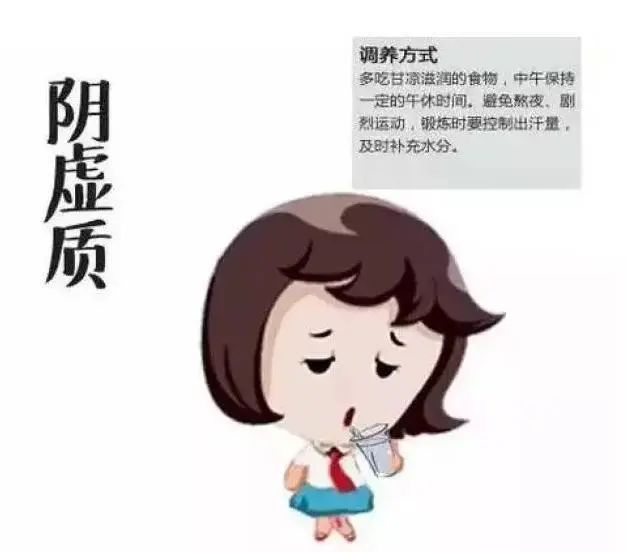
Overall Characteristics: Deficiency of Yin fluids, characterized by dry mouth and throat, and heat in the palms and soles.
Physical Characteristics: Generally slender physique.
Common Manifestations: Heat in palms and soles, dry mouth and throat, slightly dry nose, prefers cold drinks, dry stools, red tongue with little moisture, and thin rapid pulse.
Psychological Characteristics: Impatient, extroverted, and lively personality.
Tendency to Illness: Prone to deficiency-related conditions, insomnia, etc.; easily affected by heat.
Adaptability to External Environment: Tolerates winter but not summer; sensitive to heat and dryness.
Tan Shi Zhi (痰湿质) 【Type E】
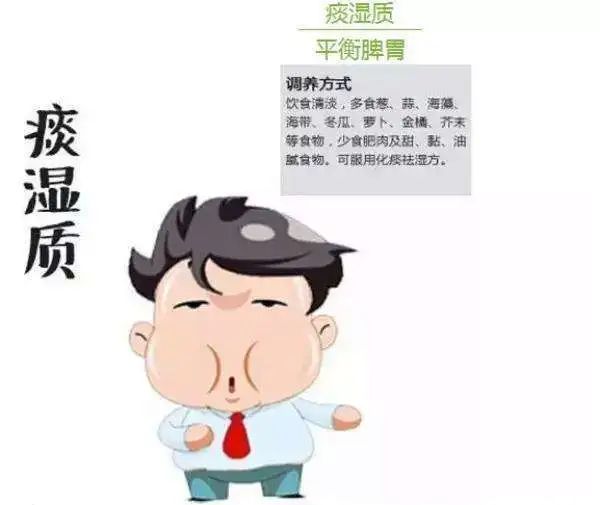
Overall Characteristics: Accumulation of phlegm and dampness, characterized by obesity, fullness in the abdomen, and greasy tongue coating.
Physical Characteristics: Obese physique with a soft and full abdomen.
Common Manifestations: Oily skin, excessive sweating, chest tightness, phlegm production, greasy or sweet taste in the mouth, prefers fatty and sweet foods, greasy tongue coating, and slippery pulse.
Psychological Characteristics: Generally mild-mannered and stable, often patient.
Tendency to Illness: Prone to diabetes, stroke, chest obstruction, etc.
Adaptability to External Environment: Poor adaptability to rainy seasons and damp environments.
Shi Re Zhi (湿热质) 【Type F】
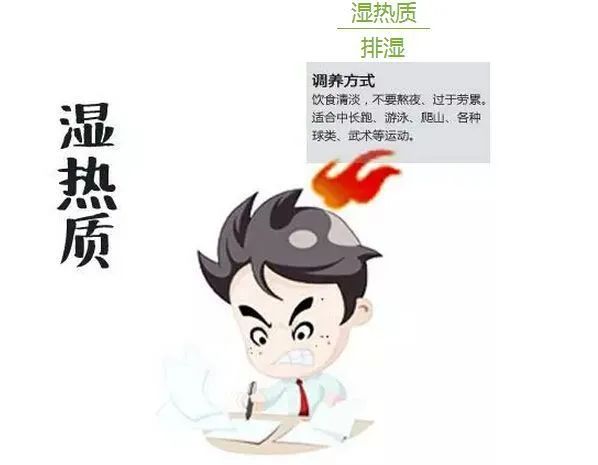
Overall Characteristics: Internal damp-heat, characterized by oily skin, bitter mouth, and yellow greasy tongue coating.
Physical Characteristics: Medium or slightly thin physique.
Common Manifestations: Oily skin, prone to acne, bitter and dry mouth, heavy and fatigued body, sticky or constipated stools, short yellow urine, men prone to dampness in the scrotum, women prone to increased vaginal discharge, red tongue with yellow greasy coating, and slippery rapid pulse.
Psychological Characteristics: Prone to irritability and anxiety.
Tendency to Illness: Prone to sores, jaundice, heat dysuria, etc.
Adaptability to External Environment: Poor adaptability to humid and hot climates, especially in late summer and early autumn.
Xue Yu Zhi (血瘀质) 【Type G】
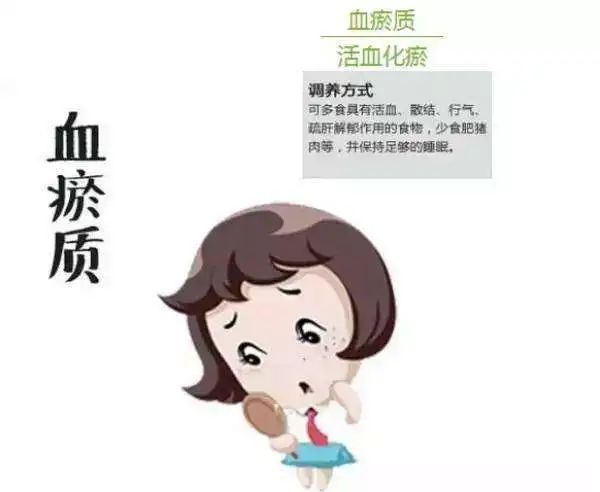
Overall Characteristics: Poor blood circulation, characterized by dull skin color and purple tongue.
Physical Characteristics: Can be either thin or fat.
Common Manifestations: Dull skin color, pigmentation, easy bruising, dark lips, purple or spotted tongue, purple or thickened sublingual veins, and choppy pulse.
Psychological Characteristics: Prone to irritability and forgetfulness.
Tendency to Illness: Prone to masses and pain syndromes, blood disorders, etc.
Adaptability to External Environment: Poor tolerance to cold.
Qi Yu Zhi (气郁质) 【Type H】
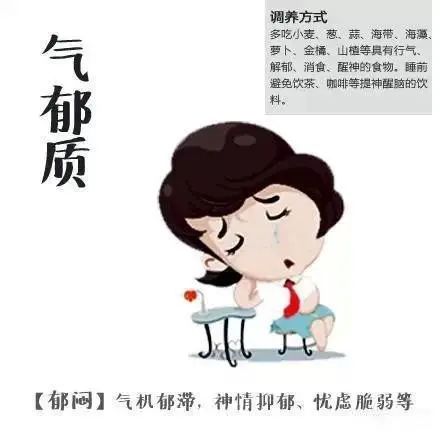
Overall Characteristics: Qi stagnation, characterized by depression, anxiety, and emotional fragility.
Physical Characteristics: Generally thin physique.
Common Manifestations: Depressed demeanor, emotional fragility, unhappiness, pale red tongue, thin white coating, and wiry pulse.
Psychological Characteristics: Introverted, unstable, sensitive, and anxious personality.
Tendency to Illness: Prone to organ disorders, plum pit qi, lily disease, and depression.
Adaptability to External Environment: Poor adaptability to mental stress; does not adapt well to rainy weather.
Te Bing Zhi (特禀质) 【Type I】
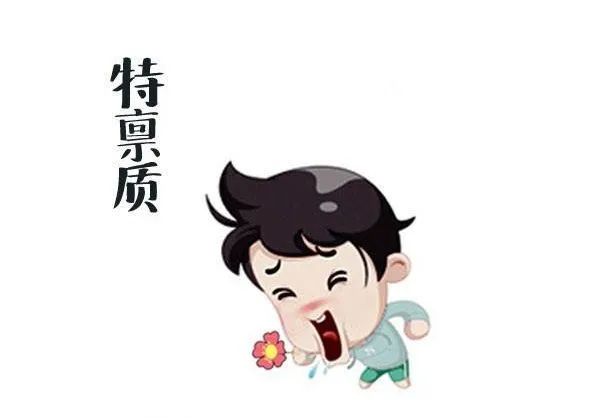
Overall Characteristics: Congenital abnormalities, characterized by physiological defects and allergic reactions.
Physical Characteristics: Generally no special features for allergic individuals; congenital abnormalities may present as deformities or physiological defects.
Common Manifestations: Allergic individuals may experience asthma, hives, itchy throat, nasal congestion, and sneezing; hereditary diseases may show vertical inheritance, congenital, or familial characteristics; fetal transmission diseases may affect fetal growth and development due to maternal influence.
Psychological Characteristics: Varies according to individual constitution.
Tendency to Illness: Allergic individuals are prone to asthma, urticaria, hay fever, and drug allergies; hereditary diseases such as hemophilia, congenital mental retardation, etc.; fetal transmission diseases such as developmental delays and soft head.
Adaptability to External Environment: Poor adaptability, such as allergic individuals being sensitive to allergenic seasons, easily triggering chronic conditions.
Methods for Determining TCM Constitution Classification
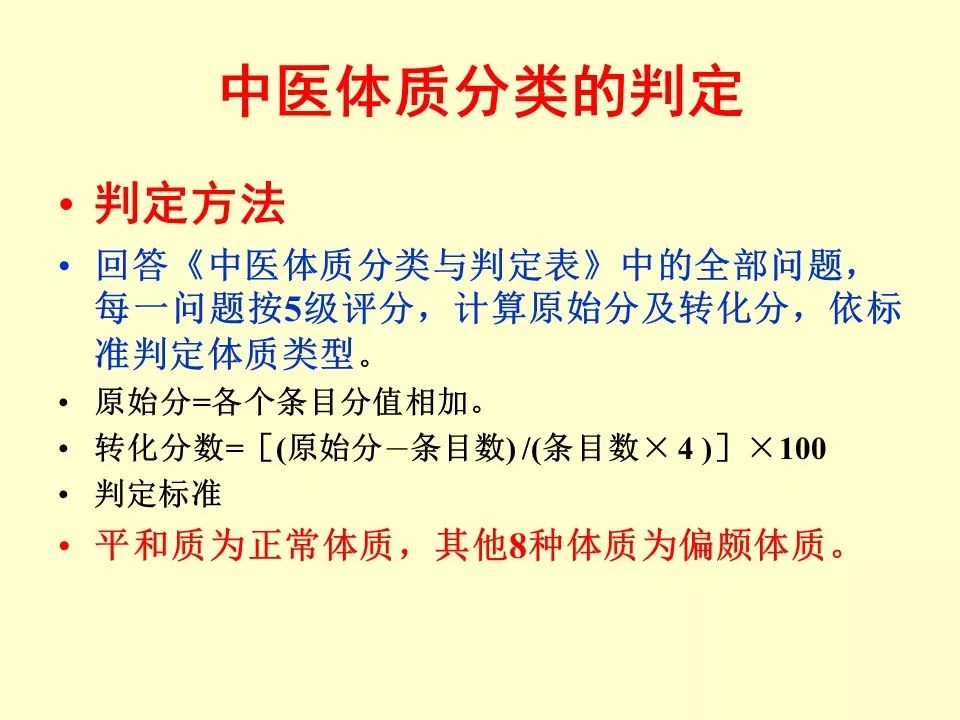
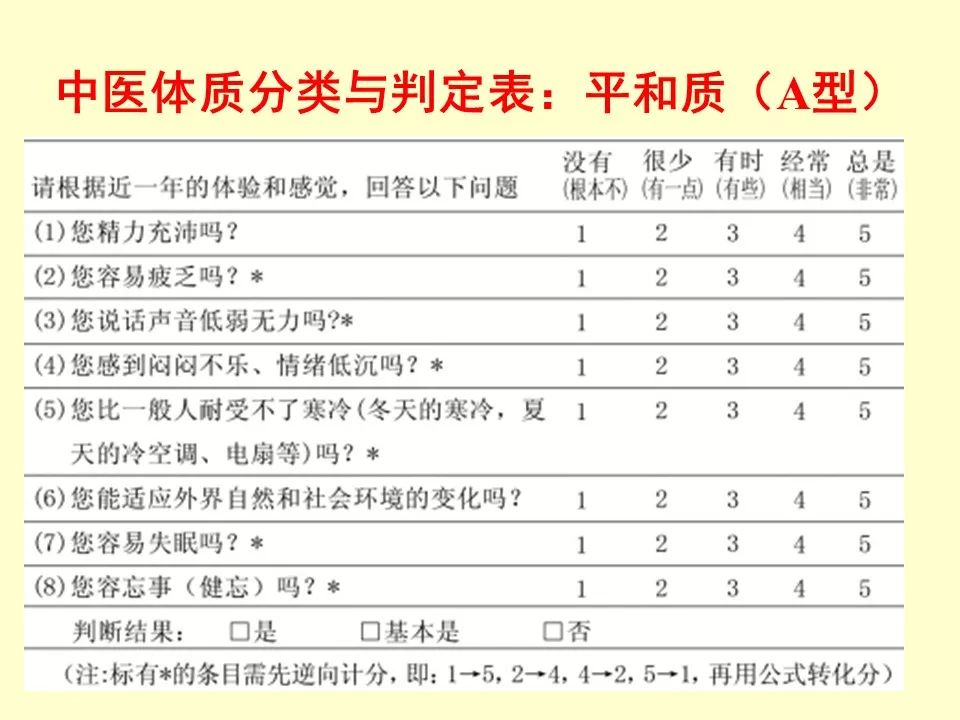
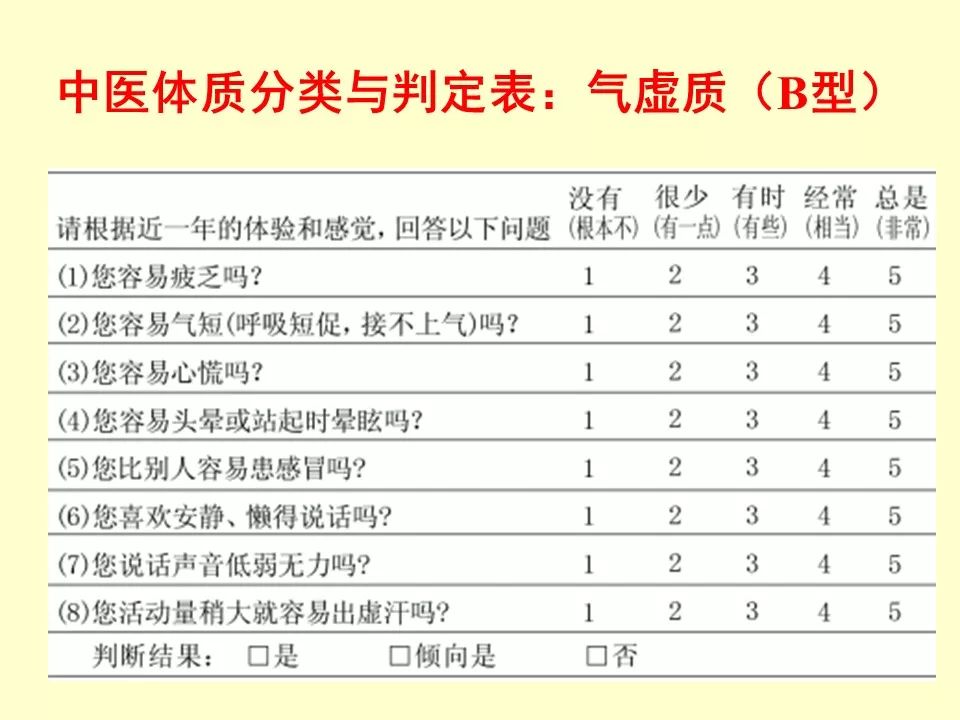
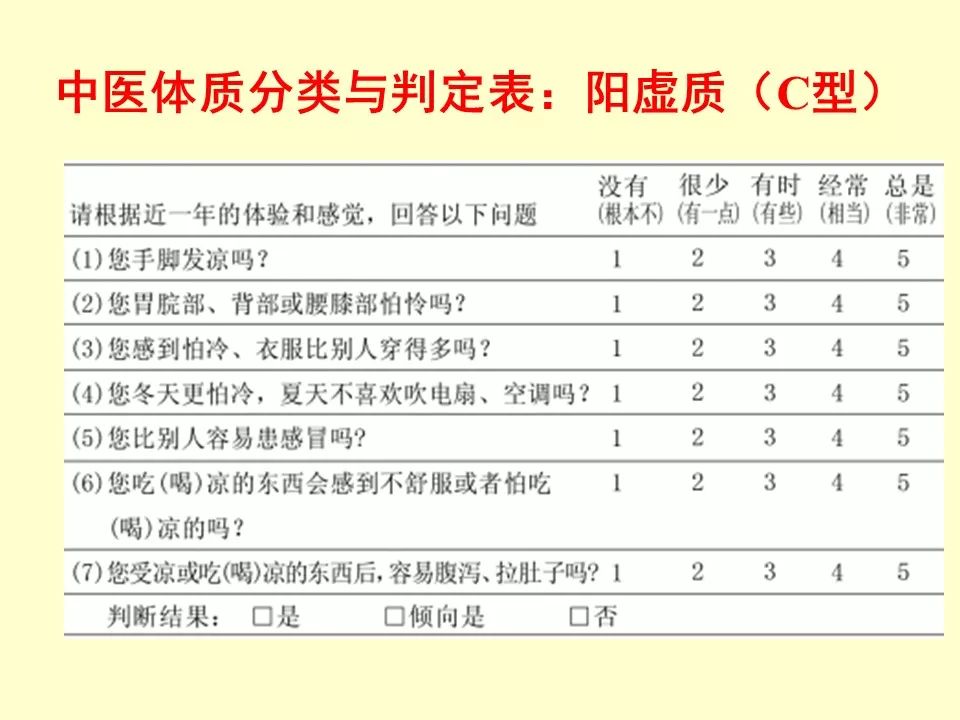
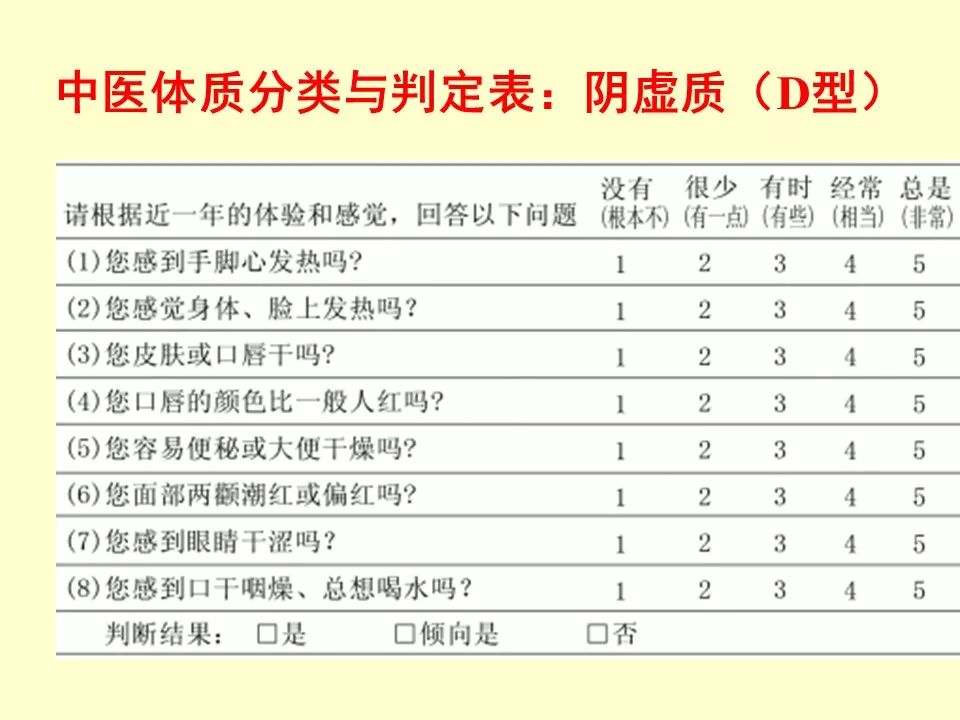
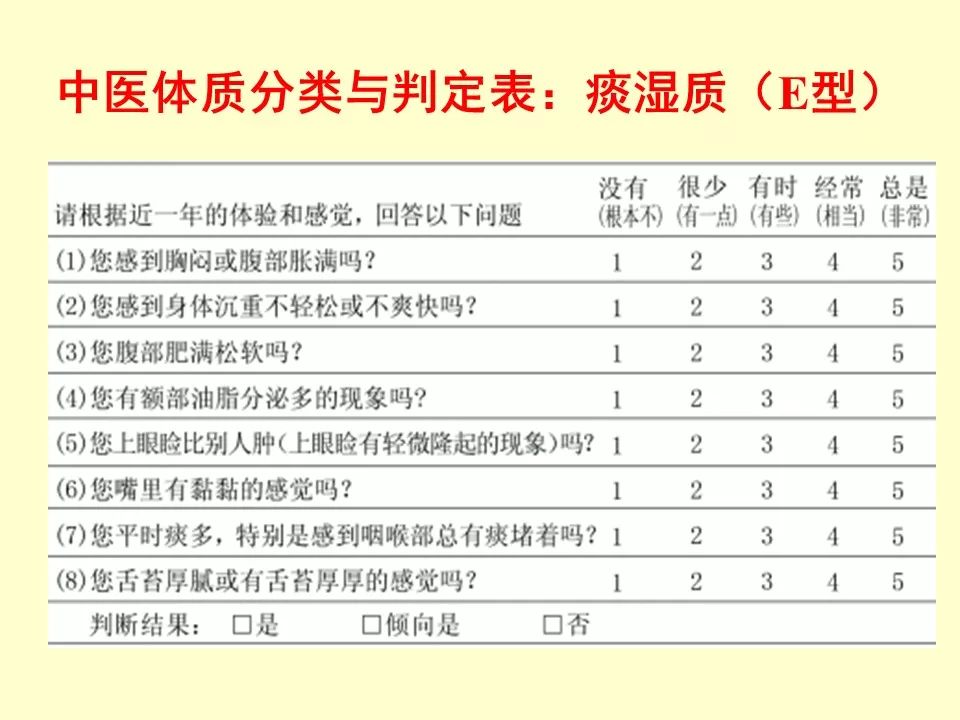
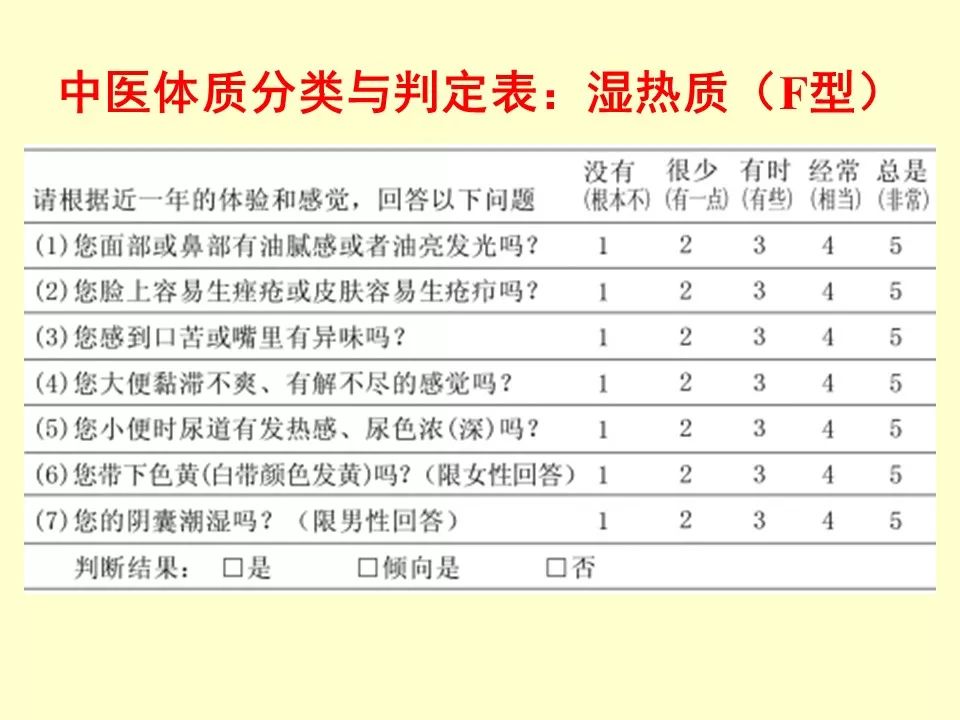
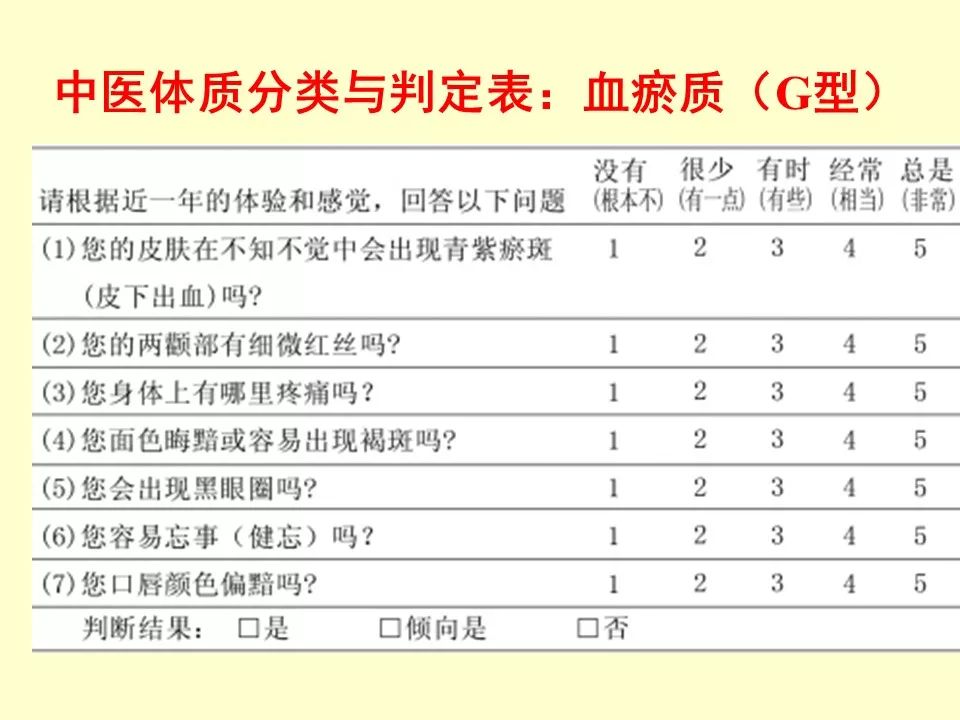
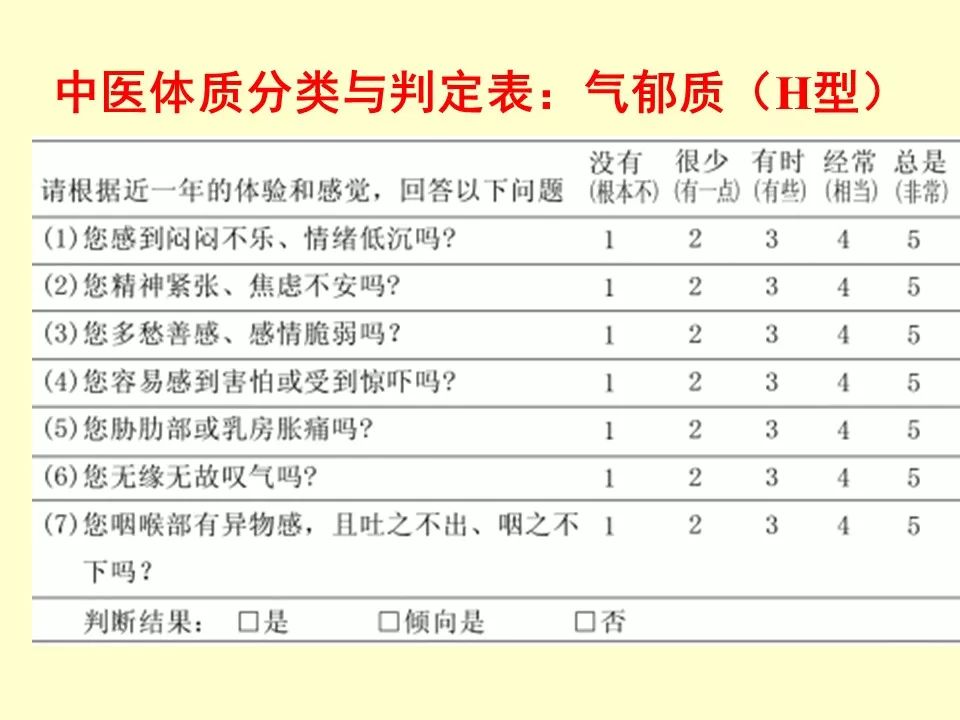
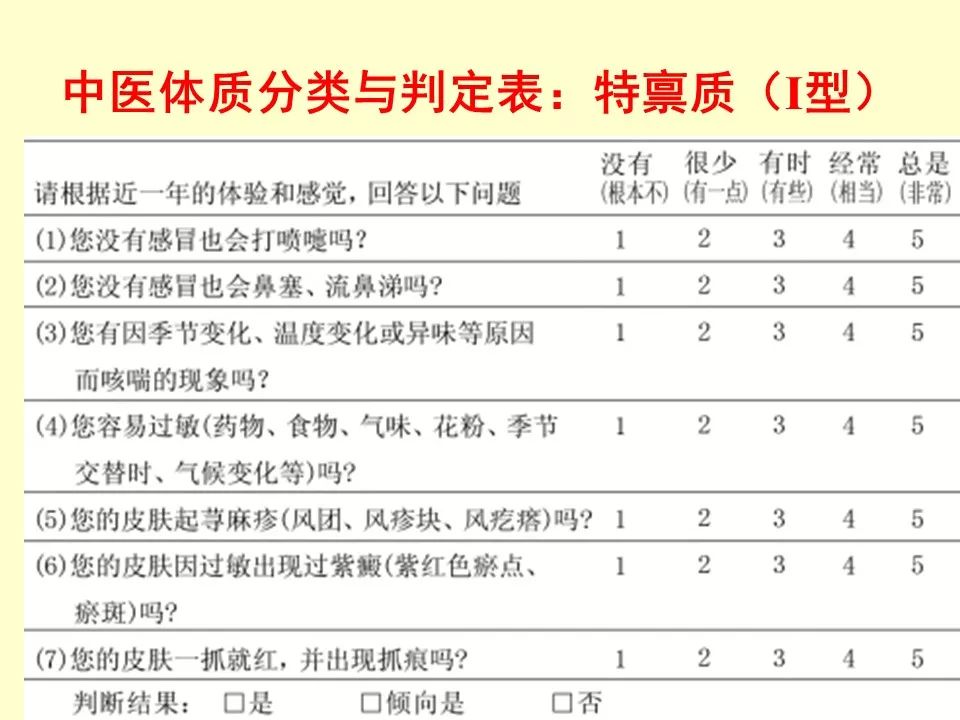
Expert Q&A: How to Adjust After Identifying Constitution?
Member of the TCM constitution research group, Associate Professor Ni Cheng from Beijing University of Chinese Medicine: Constitution can be adjusted.Constitution is influenced by both congenital factors and acquired factors. The stability of constitution is formed by similar genetic backgrounds, and factors such as age and gender can also cause certain stability in constitution. However, the stability of constitution is relative; during the life cycle of growth, development, and aging, various internal and external factors such as environment, mental state, nutrition, exercise, and diseases can cause changes in constitution. Constitution has relative stability but also dynamic variability. This characteristic is the basis for the adjustability of constitution.
Emphasizing the intrinsic connection between different constitutions and diseases, as well as the differences in responses to treatments, is a practical implementation of individualized treatment and the principle of “tailoring to the individual”. Depending on different constitution types or states, one may tonify Qi, nourish Yin, warm Yang, resolve dampness, relieve stagnation, or invigorate blood to adjust the balance of Yin and Yang, reflecting the treatment principle of “people-oriented” and “treating the root of the disease”; early detection and intervention of biased constitution states can prevent diseases, achieve quality adjustment, and prevent changes, embodying the TCM principle of “preventing disease before it occurs”. For example, individuals with Yang deficiency constitution who are cold intolerant can consume more warming foods such as beef, lamb, leeks, and ginger, while avoiding cold foods like pears, watermelon, and water chestnuts, and limiting green tea intake. They may also consume Angelica and ginger lamb soup.
Source: Compiled from Qigong Home, Baidu Wenku. If there is any infringement, please contact us for deletion.
Recommended Reading
Join Group:Various specialized nursing WeChat groups, join quickly
Submission:Welcome original articles related to nursing
Follow:WeChat public account categorized by nursing departments
Buy Books:Nursing books, click “Read the original text” below to purchase

